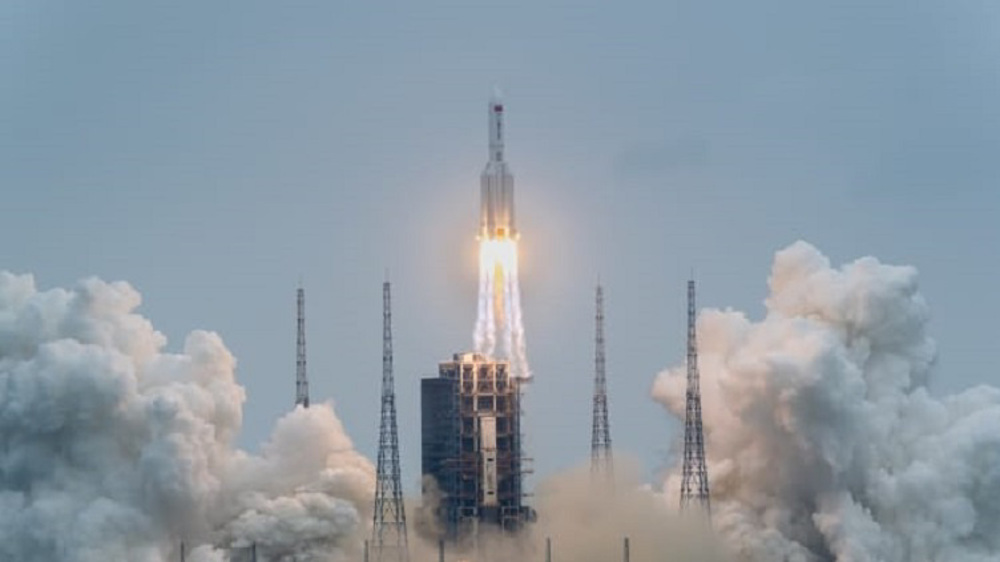Debris of giant Chinese rocket will land in Turkmenistan: Report
The debris from a rocket launched by China will land somewhere in Turkmenistan, a report says, as the rocket is expected to reenter the Earth’s atmosphere.
The Long March 5B rocket, which is around 100 feet tall and weighs 22 tons, blasted off from China’s Hainan island on April 29, helped launch Tianhe, the core module in China's new, next-generation space station.
The space base is scheduled to be completed late in 2022 to serve as a scientific research outpost for China over the next decade. Also, it will be the only other operational space habitat outside of the International Space Station.
Jim Sciutto, the chief national security correspondent for CNN, cited the US military as saying on Saturday that the debris from the Long March 5B rocket would land somewhere in Turkmenistan.
Separately, US Defense Department spokesperson Mike Howard had earlier said that the rocket was expected to enter Earth's atmosphere “around May 8”, adding that the US Space Command was tracking the rocket's trajectory.
However, he noted that rocket's “exact entry point into the Earth's atmosphere” could not be pinpointed until within hours of reentry.
After accomplishing the mission, the rocket was purportedly left to hurtle through space uncontrolled until Earth's gravity began pulling it back to the ground.
However, the Global Times, a Chinese tabloid published by the official People's Daily, on Thursday characterized as "Western hype" reports that the rocket is "out of control" and could inflict damage.
The situation is “not worth panicking about,” it added at the time, citing industry insiders.
On Friday, China's foreign ministry also said that most debris from the rocket would burn on re-entry and was highly unlikely to cause any harm.
Jonathan McDowell, an astrophysicist at the Astrophysics Center at Harvard University, had earlier told CNN that the situation was not worrying.
“The risk that there will be some damage or that it would hit someone is pretty small -- not negligible, it could happen -- but the risk that it will hit you is incredibly tiny. And so I would not lose one second of sleep over this on a personal threat basis,” he said.
“We expect it to reenter sometime between the eighth and 10th of May. And in that two-day period, it goes around the world 30 times,” McDowell added.
Trump’s military buildup against Iran on Netanyahu’s behalf is a gambit doomed to fail
Iran dismisses US 'big lies' on nuclear, missile programs
CIA‑founded NGO admits deploying Starlink satellites for Iran riots
VIDEO | French comedian targeted by Rothschild and Epstein for his shows on Palestine
Iranian commanders warn US not to mistake it for other nations
Daesh leaders reemerge in Raqqah amid growing instability in Syria
Iran rejects UN resolution on Ukraine for lack of support for lasting peace
Leading Iraqi group condemns US threats of aggression against Iran










 This makes it easy to access the Press TV website
This makes it easy to access the Press TV website